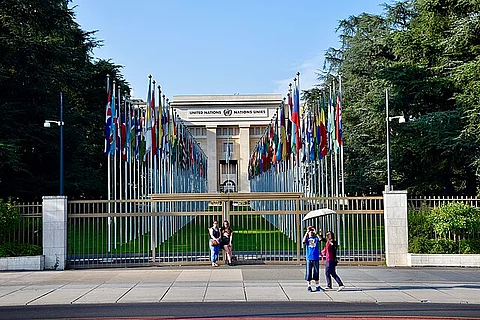

UN Secretary-General António Guterres revealed Friday that the organization’s extensive reporting output suffers from severe neglect, with 20% of documents downloaded fewer than 1,000 times and only 5% exceeding 5,500 downloads. "Downloading doesn’t necessarily mean reading," Guterres cautioned, highlighting how 27,000 annual meetings and 1,100 Secretariat reports, a 20% surge since 1990 have pushed the system toward "breaking point." The findings stem from the UN80 reform taskforce launched in March to address bureaucratic inefficiencies amid the UN’s 80th anniversary.
Persistent funding shortfalls, driven by member states’ delayed or partial dues payments have exacerbated the UN’s structural challenges. This marks the seventh consecutive year of liquidity constraints, forcing hard choices as the organization supports humanitarian programs for 130 million displaced people and feeds 120 million amid escalating global crises. The UN80 Initiative now targets "meaningful reductions" in the 2026 budget, including a 20% staff cut in peacekeeping departments and consolidation of regional offices.
A three-pronged reform strategy aims to streamline operations: relocating functions from high-cost hubs like Geneva and New York; merging duplicative units (e.g., counter-terrorism offices); and deploying AI to analyze 3,600+ mandates for redundancies. Under-Secretary-General Catherine Pollard leads a working group developing a "new business model" focused on automation, digital platforms, and centralizing IT services. Initial proposals will be submitted for September’s revised 2026 budget, with lease terminations in New York already yielding savings.
The mandate implementation review uncovered 40,000+ historical directives, many overlapping or outdated governing UN operations. Guterres urged member states to reevaluate this "unwieldy architecture," noting that reporting has become an end in itself rather than a tool for impact. Confidential task force documents propose radical consolidation, including merging UNAIDS into WHO and combining UNHCR with migration agencies. Seven thematic clusters, from peacekeeping to specialized agencies will refine proposals through 2026, prioritizing field-level responsiveness over bureaucratic processes.
Guterres emphasized that the UN’s value lies in "real-world difference," not report volume. As the initiative advances, town halls and briefings aim to align staff with the vision. Guy Ryder, chairing the UN80 Task Force, framed the transformation as essential for multilateral credibility: "A stronger, fit-for-purpose UN ready for future challenges" requires confronting fragmentation now.